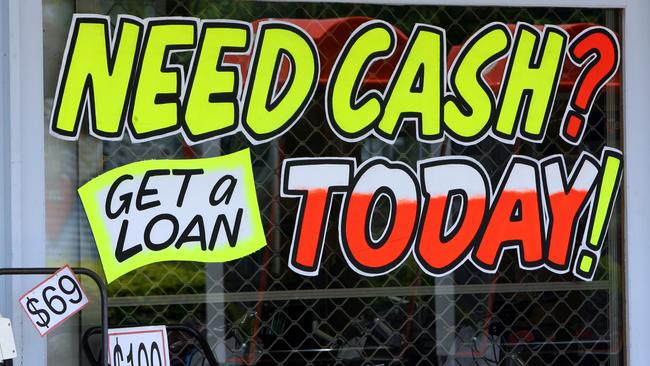Tough times and loose regulations are sending middle Australia to the pawnbroker
The cost-of-living crisis is pushing a greater number of middle class Australians than ever to use the most expensive finance option available – the services of a pawnbroker.

Business
Don't miss out on the headlines from Business. Followed categories will be added to My News.
The cost-of-living crisis is pushing a greater number of middle class Australians than ever to use the most expensive finance option available – the services of a pawnbroker.
Though widespread, the pawnbroking sector is a black hole – not just for customers but for regulators – and a new report shows the sector has somehow sidestepped the key enforcement authorities.
Worse still, an escalation of regulation in other quarters – notably the buy now, pay later sector and payday lending means consumers have been pushed into riskier and more expensive pawn loans, according the University of Melbourne report.
Struggling with a serious absence of data from the sector, the university carried out a first-hand consumer survey and found that pawnbrokers were legally charging rates equivalent to 420 per cent a year.
The report comes as higher interest rates and strong inflation are hitting consumers with a 54 per cent rise in the number of “hardship notices” for home loans compared with a year earlier at the major banks.
“There is a move towards using pawnbrokers around the world, especially in the US and UK. In Australia people are very reluctant to admit they use pawnbrokers but we have the same economic conditions here,” one of the report’s authors, Lucinda O’Brien, says.
The survey based on 1472 consumers found that of that number, 582 used pawnbrokers. It also found the same people who turned to pawnbrokers had often gone though buy now, pay later and payday loan services in the past – and that there was an overlap of more than 60 per cent.

But the most striking aspect of the report is that along with habitual pawnbroking users such as those battling gambling and substance abuse were Australians “trying to sustain a precious small business”.
“What we have here is a regulatory vacuum; we need much more information on the sector,” consumer activist Gerard Brody says.
Here’s the reality of contemporary pawnbroking services in Australia:
● They are largely exempt from the national consumer credit laws;
● They are not covered by the Australian Securities and Investments Commission in data collection or its Moneysmart consumer protection service;
● They are not involved in dispute resolution with the Australian Financial Complaints Authority.
Consumer action groups face a dilemma over pawnbroking because the lack of regulation means a lack of data. “We need a proper inquiry into this area, ideally from the Productivity Commission,” O’Brien says.
Pawned property loans still operate as an alternative to loans from risk-averse banks or other mainstream finance companies. Typically, the collateral is an asset which is held “in hock” – such as cars, jewellery or watches.
The loans are high interest and short term, however they can be extended indefinitely, leading to levels of annualised interest which are dramatically higher than other areas of lending.
Or as the report says, “(they) take out new pawn loans and incur more fees in the hope they will somehow find a way to get their pawned items back”.
According to the report there were at last count 158 licensed pawnbrokers operating in Victoria and about 183 pawnbrokers licensed in New South Wales.
The report pointed to an increase in pawn lending by the Cash Converters chain which owns 79 Australian stores and a significant network of franchises across the country.
Cash Converters accounts for the year to June 2023 carried an increase in “pawnbroking fees” from $27m to $35m.
Originally published as Tough times and loose regulations are sending middle Australia to the pawnbroker





